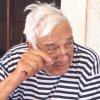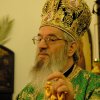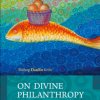Born Bogdan Denis Denič, in Sofia, Bulgaria, he is the son of a Yugoslav diplomat. His parents were of Serbian background. His father was forced into exile by the Nazis and then by Marshal Josip Broz Tito’s communist regime after World War II. He emigrated with his family to the United States in 1946. He enrolled in CUNY (then City College) in 1947, and at age 18 joined the Young People’s Socialist League (YPSL), then the youth affiliate of the Socialist Party of America, led by Norman Thomas. He helped lead that organization into a merger with the Socialist Youth League to form the Young Socialist League in 1954. He learned machinist skills at Metal Trades High School at night while studying at City College, worked as a journeyman machinist and tool and die maker for 13 years, and was an activist in the International Association of Machinists. His machinist union card gave him mobility, and he moved to the San Francisco Bay area in 1958. He was a member of the San Francisco Central Labor Council, and was active in the NAACP and CORE from 1948 to 1964.
In 1964 Denitch moved to Yugoslavia for five years, where he did field research for several sociological projects on unions and on students for Seymour Martin Lipset of the University of California at Berkeley. In 1968 Denitch secured a major research position for a study of elites in Yugoslavia, through the Bureau of Applied Social Research at Columbia University. He moved back to New York in 1969 to complete work on an MA in sociology at Columbia, awarded in 1970 (the university waived its requirement of a BA degree, which Denitch had never completed). He received a doctorat d'université from University of Paris in 1972 for research on the new working class with Serge Mallet and Lucien Goldman. He completed his PhD in sociology in 1973 at Columbia with his dissertation on Yugoslavian elites. He taught at Yale University in 1972, and moved in 1973 to Queens College of CUNY, where he remained until his retirement in 1994. He was executive officer of the PhD Program in Sociology at CUNY Graduate School from 1976 through 1988. He also taught during sabbatical leaves at Birbeck College, University of London in 1979, at the University of Paris in Saint Denis in 1982, at Johns Hopkins University in Bologna in 1980, and at the University of Zagreb in 1973, 1977, and 1988. He was also a visiting research professor at UNAM in Mexico City in 1986, 1988 and 1990.
A long-time associate of the late American socialist leader Michael Harrington, Denitch is a co-founder and an honorary chairman of the Democratic Socialists of America (DSA). He has had a close relationship with the Swedish Social Democratic Party and the Mexican Party of the Democratic Revolution (PRD), and has served as DSA’s representative to the Socialist International. He was a founder in 1983 and chair of the Socialist Scholars Conference, held annually in New York City, until controversy over his leadership led to its suspension and demise in 2005.
In 1991 he created the NGO Transition to Democracy (T.o.D.), which works in the successor states of Yugoslavia for human rights and against nationalism. Since 1991 he has organized an annual conference, the School on Democracy and Social Justice, for human rights activists from these states. He helped found two democratic socialist parties (now defunct) in Croatia in the 1990s, the Social Democratic Union and Social Democratic Action. Denitch serves on the editorial board of the journal Dissent, and is a sponsor of the journal New Politics. He is also a member of the Advisory board of Novi Plamen magazine.
Denitch lived in New York City from 1969 until his retirement. Currently he spends four months of the year in New York, the other eight months in the former Yugoslavia, where he maintains a home on the island of Brač in Croatia. He is married and has an adult daughter. His autobiography is in preparation.
Books authored:
- Opinion-Making Elites in Yugoslavia. Co-authored with Allen H. Barton and Charles Kadushin (Praeger, 1973). ISBN 978-0-275-28692-7
- The Legitimation of a Revolution: The Yugoslav case (Yale University Press, 1976).
- Society and Social Change in Eastern Europe (Cliff Notes, 1978). ISBN 978-0-8220-1915-2
- Legitimation of Regimes: International Frameworks for Analysis (Sage Publications, 1979). ISBN 978-0-8039-9898-8
- Democratic Socialism: The Mass Left in Advanced Industrial Societies (Allanheld, Osmun, 1981).
- A New Foreign and Defense Policy for the United States (Rowman and Littlefield, 1988). ISBN 978-0-8220-1915-2
- The End of the Cold War: European Unity, Socialism, and the Shift in Global Power (University of Minnesota Press, 1990). ISBN 978-0-8166-1875-0
- Limits and Possibilities: The Crisis of Yugoslav Socialism and State Socialist Systems (University of Minnesota Press, 1990). ISBN 978-0-8166-1844-6
- The Socialist Debate: Beyond Red and Green (Pluto Press, 1990). ISBN 978-0-7453-0381-9
- After the Flood: World Politics and Democracy in the Wake of Communism (Wesleyan, 1992). ISBN 978-0-8195-6256-2
- Ethnic Nationalism: The Tragic Death of Yugoslavia (University of Minnesota Press, 1994). ISBN 978-0-8166-2458-4
Certain of Denitch's books have been translated into French, German, Swedish, Spanish, Slovenian and Serbo-Croat.
From Wikipedia






